| Availability: | |
|---|---|
| Quantity: | |
| Product Name | neodymium donut magnets |
| Material | Neodymium (Nd), Iron (Fe), and Boron (B) |
| Size | Customized size |
| Shape | Customized (block,Disc,Cylinder, Bar, Ring,Arc,Countersunk, Segment, hook) |
| Coating | Customised (Ni, Zn, Epoxy, Gold, etc.) |
| Size tolerance | ±0.02mm for diamater / thickness, ±0.1mm for width / length |
| Density | 8-5.9g/cm³ |
| Magnetization | Thickness Magnetized, Axially Magnetized, Diametrally Magnetized |
| Applications | Neodymium(NdFeB) Magnet are widely used in many fields, such as motors, sensors,microphones, wind turbines, wind generators,printer, switchboard, packing box , loudspeakers, magnetic separation, magnetic hooks, magnetic holder, magnetic chuck, ect. |
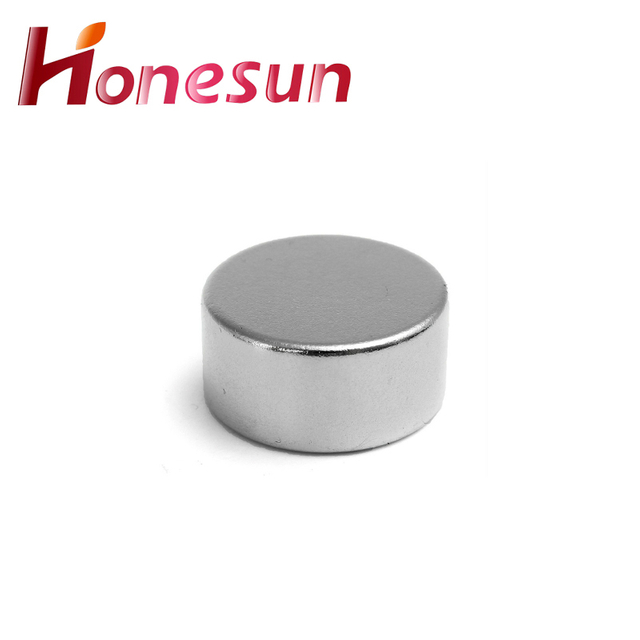
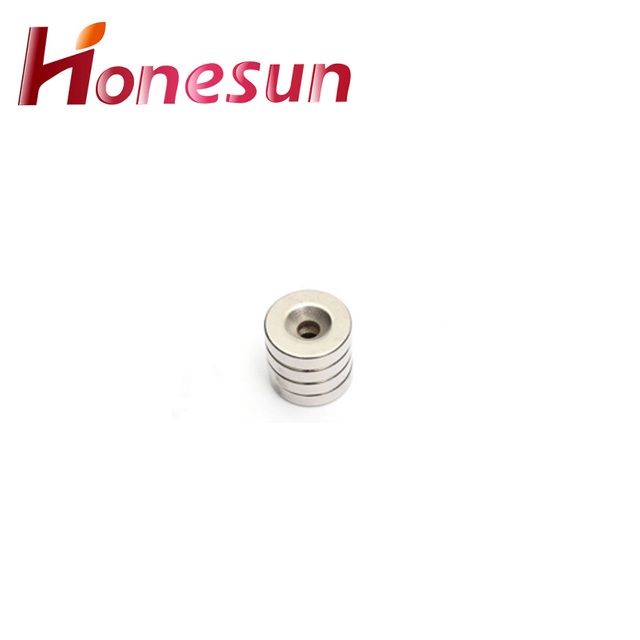
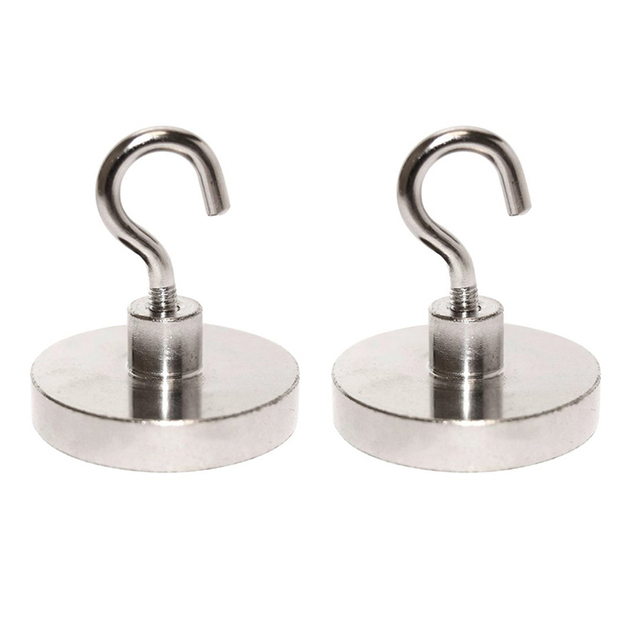
1.What is the maximum operating temperature of neodymium donut magnets?
We continuously upgrade our skills and knowledge to adapt to changing neodymium donut magnets market needs. The maximum operating temperature of Neodymium Magnets is 80°C (176°F).
2.Can neodymium donut magnets damage credit cards or electronic devices?
Being one of the top neodymium donut magnets manufacturers in China, We attach great importance to this detail. No, neodymium magnets will not damage credit cards or electronic devices. However, it is important to keep in mind that neodymium magnets are very powerful and can cause damage to other magnetic materials, such as hard drives, speakers, and other electronic components. Therefore, it is important to keep neodymium magnets away from any electronic devices.

3.Are there any restrictions on the production or use of neodymium donut magnets?
Yes, there are restrictions on the production and use of neodymium magnets. Neodymium magnets are subject to the European Union's Restriction of Hazardous Substances (RoHS) directive, which restricts the use of certain hazardous materials in electrical and electronic equipment. Additionally, neodymium magnets are subject to the International Maritime Organization's (IMO) International Maritime Dangerous Goods (IMDG) Code, which regulates the transport of hazardous materials by sea. Finally, neodymium magnets are subject to the United Nations' International Atomic Energy Agency (IAEA) regulations, which regulate the use of radioactive materials.
4.How are neodymium donut magnets used in the military?
Neodymium magnets are used in the military for a variety of applications. They are used in navigation systems, guidance systems, and sensors. They are also used in weapons systems, such as magnetic mines, and in the guidance systems of missiles and torpedoes. Neodymium magnets are also used in the construction of military vehicles, such as tanks and aircraft, to reduce their weight and improve their performance.

5.Are there any health risks associated with neodymium donut magnets?
We adhere to the principle of quality first and have a complete production quality management system and quality inspection process. Yes, there are some health risks associated with neodymium magnets. If swallowed, they can cause serious injury or even death. They can also pinch skin and cause cuts or bruises if handled improperly. Additionally, they can interfere with pacemakers and other medical devices.
6.What makes neodymium donut magnets different from other types of magnets?
We are a professional neodymium donut magnets company dedicated to providing high quality products and services. Neodymium magnets are the strongest type of permanent magnet available. They are made from an alloy of neodymium, iron, and boron and are much stronger than other types of magnets, such as ceramic or alnico magnets. Neodymium magnets are also more resistant to demagnetization than other types of magnets, making them ideal for applications where a strong, permanent magnet is needed.

7.What are the environmental impacts of mining Neodymium for magnets?
The environmental impacts of mining neodymium for magnets can include air and water pollution, land degradation, and the destruction of habitats. Mining neodymium can also lead to the release of hazardous chemicals, such as sulfur dioxide, nitrogen oxides, and carbon dioxide, into the atmosphere. Additionally, the mining process can cause soil erosion, which can lead to the destruction of vegetation and wildlife habitats. Finally, the mining process can also lead to the release of radioactive materials, which can be hazardous to human health.
8.About neodymium donut magnets production skills training
Neodymium magnets are a type of rare earth magnet that is made from an alloy of neodymium, iron, and boron. They are the strongest type of permanent magnet available and are used in a variety of applications, from consumer electronics to industrial machinery. Neodymium magnets production skills training is designed to teach participants the basics of producing neodymium magnets. The training covers topics such as the properties of neodymium magnets, the manufacturing process, and safety considerations. Participants will also learn about the different types of neodymium magnets and their uses. The training is designed to give participants the knowledge and skills needed to produce neodymium magnets in a safe and efficient manner.
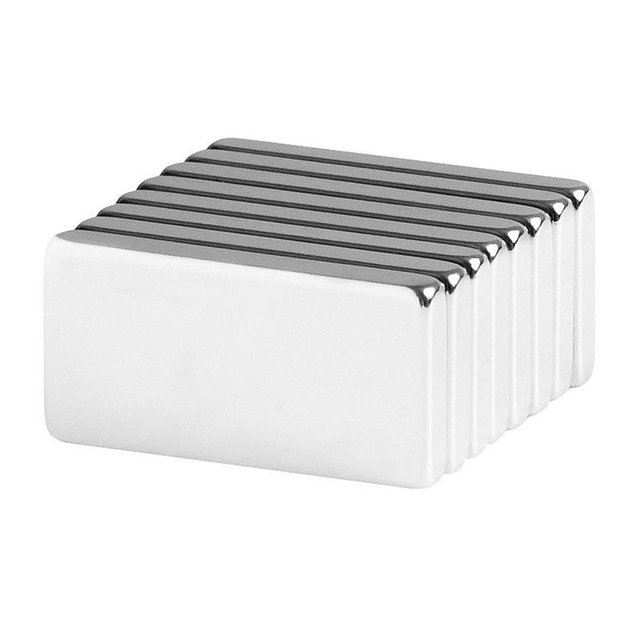
9.What is the weight-to-strength ratio of neodymium donut magnets?
The weight-to-strength ratio of Neodymium Magnets is typically around 1:10, meaning that for every gram of weight, the magnet can hold 10 times its weight in force.
10.Are neodymium donut magnets used in headphones and speakers?
Our company has many years of neodymium donut magnets experience and expertise. Yes, neodymium magnets are used in headphones and speakers. They are used to create a strong magnetic field that helps to produce a clear and powerful sound.
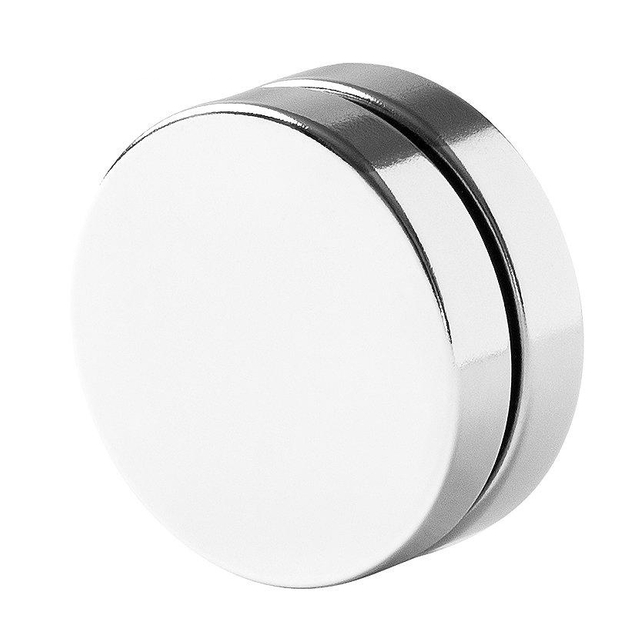
11.About the scale of neodymium donut magnets factory
Neodymium magnets are produced in a variety of sizes, shapes, and grades. The size of a neodymium magnet factory can vary greatly depending on the type of magnets being produced. Some factories may only produce small magnets, while others may produce large magnets for industrial applications. The size of the factory also depends on the number of employees and the amount of equipment needed to produce the magnets.
12.Are there any ethical concerns regarding the use of neodymium donut magnets?
Yes, there are ethical concerns regarding the use of Neodymium Magnets. Neodymium magnets are powerful and can cause serious injury if swallowed. They can also interfere with medical devices such as pacemakers and defibrillators. Additionally, Neodymium magnets can be dangerous if used in the wrong way, such as when used to create a powerful magnetic field. Finally, Neodymium magnets can be hazardous to the environment if not disposed of properly.

13.How do neodymium donut magnets contribute to sustainable energy?
We operate our neodymium donut magnets business with integrity and honesty. Neodymium magnets are used in a variety of renewable energy technologies, such as wind turbines, solar panels, and electric vehicles. They are used to generate electricity from wind and solar energy, and to power electric vehicles. Neodymium magnets are also used in the motors of hybrid and electric vehicles, which helps to reduce emissions and improve fuel efficiency. Additionally, neodymium magnets are used in the production of energy-efficient lighting, such as LED lights, which helps to reduce energy consumption.
14.Can neodymium donut magnets be used for magnetic data storage?
No, neodymium magnets cannot be used for magnetic data storage. Neodymium magnets are too weak to store data reliably. Magnetic data storage requires much stronger magnets, such as rare earth magnets.
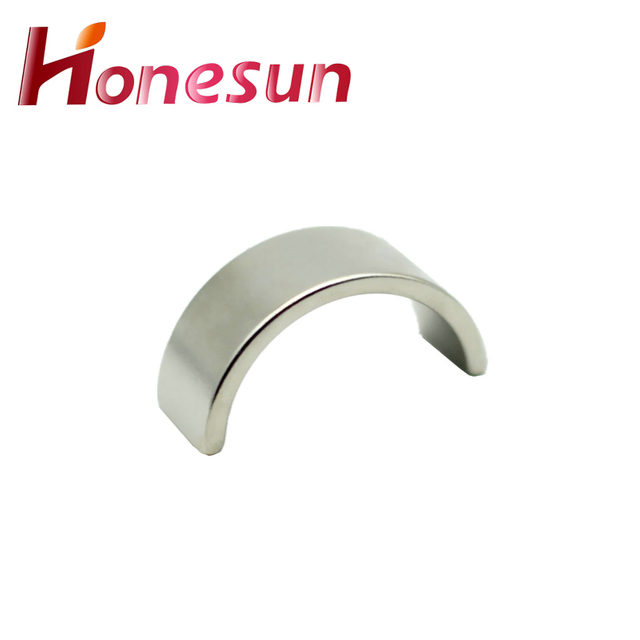
15.About neodymium donut magnets quality system
Neodymium magnets are a type of rare earth magnet that is composed of an alloy of neodymium, iron, and boron. They are the strongest type of permanent magnet commercially available and are used in a wide variety of applications. The quality of neodymium magnets is determined by the purity of the raw materials used in their manufacture, the manufacturing process, and the quality control measures in place. Quality control measures include testing for magnetic strength, corrosion resistance, and dimensional accuracy. Quality systems are in place to ensure that neodymium magnets meet the required specifications and are safe for use in the intended application.
| Product Name | neodymium donut magnets |
| Material | Neodymium (Nd), Iron (Fe), and Boron (B) |
| Size | Customized size |
| Shape | Customized (block,Disc,Cylinder, Bar, Ring,Arc,Countersunk, Segment, hook) |
| Coating | Customised (Ni, Zn, Epoxy, Gold, etc.) |
| Size tolerance | ±0.02mm for diamater / thickness, ±0.1mm for width / length |
| Density | 8-5.9g/cm³ |
| Magnetization | Thickness Magnetized, Axially Magnetized, Diametrally Magnetized |
| Applications | Neodymium(NdFeB) Magnet are widely used in many fields, such as motors, sensors,microphones, wind turbines, wind generators,printer, switchboard, packing box , loudspeakers, magnetic separation, magnetic hooks, magnetic holder, magnetic chuck, ect. |



1.What is the maximum operating temperature of neodymium donut magnets?
We continuously upgrade our skills and knowledge to adapt to changing neodymium donut magnets market needs. The maximum operating temperature of Neodymium Magnets is 80°C (176°F).
2.Can neodymium donut magnets damage credit cards or electronic devices?
Being one of the top neodymium donut magnets manufacturers in China, We attach great importance to this detail. No, neodymium magnets will not damage credit cards or electronic devices. However, it is important to keep in mind that neodymium magnets are very powerful and can cause damage to other magnetic materials, such as hard drives, speakers, and other electronic components. Therefore, it is important to keep neodymium magnets away from any electronic devices.

3.Are there any restrictions on the production or use of neodymium donut magnets?
Yes, there are restrictions on the production and use of neodymium magnets. Neodymium magnets are subject to the European Union's Restriction of Hazardous Substances (RoHS) directive, which restricts the use of certain hazardous materials in electrical and electronic equipment. Additionally, neodymium magnets are subject to the International Maritime Organization's (IMO) International Maritime Dangerous Goods (IMDG) Code, which regulates the transport of hazardous materials by sea. Finally, neodymium magnets are subject to the United Nations' International Atomic Energy Agency (IAEA) regulations, which regulate the use of radioactive materials.
4.How are neodymium donut magnets used in the military?
Neodymium magnets are used in the military for a variety of applications. They are used in navigation systems, guidance systems, and sensors. They are also used in weapons systems, such as magnetic mines, and in the guidance systems of missiles and torpedoes. Neodymium magnets are also used in the construction of military vehicles, such as tanks and aircraft, to reduce their weight and improve their performance.

5.Are there any health risks associated with neodymium donut magnets?
We adhere to the principle of quality first and have a complete production quality management system and quality inspection process. Yes, there are some health risks associated with neodymium magnets. If swallowed, they can cause serious injury or even death. They can also pinch skin and cause cuts or bruises if handled improperly. Additionally, they can interfere with pacemakers and other medical devices.
6.What makes neodymium donut magnets different from other types of magnets?
We are a professional neodymium donut magnets company dedicated to providing high quality products and services. Neodymium magnets are the strongest type of permanent magnet available. They are made from an alloy of neodymium, iron, and boron and are much stronger than other types of magnets, such as ceramic or alnico magnets. Neodymium magnets are also more resistant to demagnetization than other types of magnets, making them ideal for applications where a strong, permanent magnet is needed.

7.What are the environmental impacts of mining Neodymium for magnets?
The environmental impacts of mining neodymium for magnets can include air and water pollution, land degradation, and the destruction of habitats. Mining neodymium can also lead to the release of hazardous chemicals, such as sulfur dioxide, nitrogen oxides, and carbon dioxide, into the atmosphere. Additionally, the mining process can cause soil erosion, which can lead to the destruction of vegetation and wildlife habitats. Finally, the mining process can also lead to the release of radioactive materials, which can be hazardous to human health.
8.About neodymium donut magnets production skills training
Neodymium magnets are a type of rare earth magnet that is made from an alloy of neodymium, iron, and boron. They are the strongest type of permanent magnet available and are used in a variety of applications, from consumer electronics to industrial machinery. Neodymium magnets production skills training is designed to teach participants the basics of producing neodymium magnets. The training covers topics such as the properties of neodymium magnets, the manufacturing process, and safety considerations. Participants will also learn about the different types of neodymium magnets and their uses. The training is designed to give participants the knowledge and skills needed to produce neodymium magnets in a safe and efficient manner.

9.What is the weight-to-strength ratio of neodymium donut magnets?
The weight-to-strength ratio of Neodymium Magnets is typically around 1:10, meaning that for every gram of weight, the magnet can hold 10 times its weight in force.
10.Are neodymium donut magnets used in headphones and speakers?
Our company has many years of neodymium donut magnets experience and expertise. Yes, neodymium magnets are used in headphones and speakers. They are used to create a strong magnetic field that helps to produce a clear and powerful sound.

11.About the scale of neodymium donut magnets factory
Neodymium magnets are produced in a variety of sizes, shapes, and grades. The size of a neodymium magnet factory can vary greatly depending on the type of magnets being produced. Some factories may only produce small magnets, while others may produce large magnets for industrial applications. The size of the factory also depends on the number of employees and the amount of equipment needed to produce the magnets.
12.Are there any ethical concerns regarding the use of neodymium donut magnets?
Yes, there are ethical concerns regarding the use of Neodymium Magnets. Neodymium magnets are powerful and can cause serious injury if swallowed. They can also interfere with medical devices such as pacemakers and defibrillators. Additionally, Neodymium magnets can be dangerous if used in the wrong way, such as when used to create a powerful magnetic field. Finally, Neodymium magnets can be hazardous to the environment if not disposed of properly.

13.How do neodymium donut magnets contribute to sustainable energy?
We operate our neodymium donut magnets business with integrity and honesty. Neodymium magnets are used in a variety of renewable energy technologies, such as wind turbines, solar panels, and electric vehicles. They are used to generate electricity from wind and solar energy, and to power electric vehicles. Neodymium magnets are also used in the motors of hybrid and electric vehicles, which helps to reduce emissions and improve fuel efficiency. Additionally, neodymium magnets are used in the production of energy-efficient lighting, such as LED lights, which helps to reduce energy consumption.
14.Can neodymium donut magnets be used for magnetic data storage?
No, neodymium magnets cannot be used for magnetic data storage. Neodymium magnets are too weak to store data reliably. Magnetic data storage requires much stronger magnets, such as rare earth magnets.

15.About neodymium donut magnets quality system
Neodymium magnets are a type of rare earth magnet that is composed of an alloy of neodymium, iron, and boron. They are the strongest type of permanent magnet commercially available and are used in a wide variety of applications. The quality of neodymium magnets is determined by the purity of the raw materials used in their manufacture, the manufacturing process, and the quality control measures in place. Quality control measures include testing for magnetic strength, corrosion resistance, and dimensional accuracy. Quality systems are in place to ensure that neodymium magnets meet the required specifications and are safe for use in the intended application.
Honesun Industrial Co., Ltd. focuses on designing, researching, developing, manufacturing and selling Magnets and Magnetic Assemblies. With more than 15 years' rich experience and considerate services.we have been recognized as a reliable.



